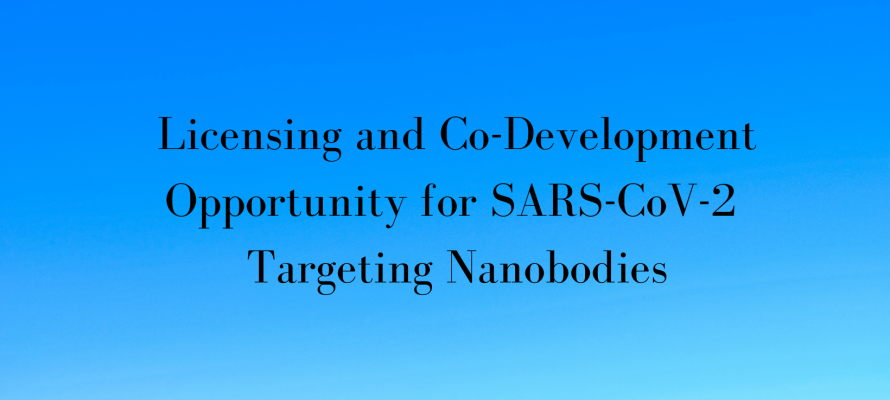Licensing and Co-Development Opportunity for Single Domain Antibodies Targeting SARS-CoV-2

Are you interested in licensing or co-developing SARS-CoV-2 targeting antibodies? Investigators at the National Cancer Institute (NCI) have isolated a panel of anti-receptor binding domain (RBD) single domain antibodies (also called ‘nanobodies’) from camel single domain (VHH) phage display libraries. COVID-19 is caused by a novel coronavirus called SARS-CoV-2. SARS-COV-2 infects hosts via its spike (S) protein. The S protein contains the RBD that binds to the angiotensin converting enzyme 2 (ACE2) receptor on human cells to facilitate viral entry and infection. RBD is an ideal target as it is the key virus-host contact region required for viral entry and infection. There are 3 lead nanobodies, 7A3, 1B5, and 2F7, which were found to be the most potent RBD-ACE2 blockers. Interestingly, the 1B5 nanobody can cross react with the S protein of the previous 2002-2003 SARs-CoV coronavirus. This indicates that this nanobody targets a conserved region of the S protein and may be useful for treatments against other coronavirus variants that may emerge.
The potential commercial applications of this technology include:
• Neutralizing nanobodies,
• Nanobody-Fc fusion proteins as standard antibody therapy,
• Antibody-drug conjugates (ADCs), immunotoxins,
• Diagnostic reagents (in vivo virus imaging),
• CARs (CAR T, NK, and macrophage)
The competitive advantages of this technology include:
• The nanobodies directly target the RBD of the SARS-CoV-2 spike (S) protein, which blocks the virus-host contact region required for viral entry and infection.
• Due to their small size and high stability, the nanobodies may be administered by an inhaler making them ideal for respiratory infections such as COVID-19.
There are very few therapeutics available for COVID-19 patients that directly target SARS-CoV-2. If you are interested, you can read more about this opportunity here.
